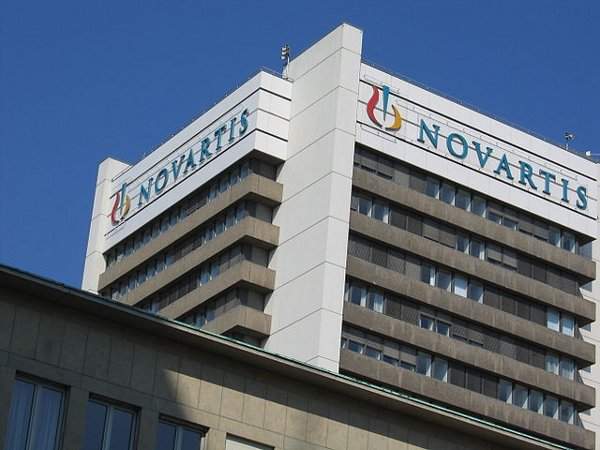

Bayer and Compugen partner to develop new cancer immunotherapy

Bayer HealthCare and Compugen have signed an oncology collaboration and license agreement to research, develop and commercialise a new cancer treatment.

Discover B2B Marketing That Performs
Combine business intelligence and editorial excellence to reach engaged professionals across 36 leading media platforms.
The partnership is focused on antibody-based therapeutics for cancer immunotherapy, targeting two novel immune checkpoint regulators discovered by Compugen.
The Bayer HealthCare executive committee member and global drug discovery head professor Andreas Busch said the company is committed to translating the science of cancer research into effective therapies, helping people affected by cancer live longer and improve their quality of life.
US sets up two research consortia for PTSD and mTBI
The US Departments of Defense (DoD) and Veterans Affairs (VA) have set up two multi-institutional consortia to research post-traumatic stress disorder (PTSD) and mild traumatic brain injury (mTBI) during a five-year period.
The departments will jointly invest $107m in the two research consortia, the Consortium to Alleviate PTSD (CAP) and the Chronic Effects of Neurotrauma Consortium (CENC), in response to President Obama’s Executive Order.

US Tariffs are shifting - will you react or anticipate?
Don’t let policy changes catch you off guard. Stay proactive with real-time data and expert analysis.
By GlobalDataThe Executive Order directs the federal agencies to develop a coordinated National Research Action Plan to improve the prevention, diagnosis and treatment of mental health conditions.
Veterans Affairs secretary Eric Shinseki said that VA has joined with partners in the federal government and the academic community to support the President’s vision and invest in research that could lead to innovative new treatments for TBI and PTSD.
Novartis’s Afinitor Phase III trial fails to meet primary end-point

Switzerland-based Novartis’s Phase III trial of an advanced liver cancer drug, Afinitor (everolimus), did not meet the primary end-point of overall survival benefit in patients with advanced hepatocellular carcinoma (HCC) after progression on or intolerance to sorafinib.
Designed to examine the efficacy and safety of Afinitor versus placebo, the double-blind, placebo-controlled Phase III study, everolimus for liver cancer evaluation-1 (EVOLVE-1), trial involved 546 patients at 156 sites globally.
Novartis Oncology medical affairs and oncology development global head Alessandro Riva said the company is committed to studying everolimus through a robust research and development programme to address unmet needs in tackling different types of cancer.
Adimab, Innovent partner for antibody-based therapeutic discovery programme
Adimab, a monoclonal and bispecific antibody discovery company, and Chinese privately-held biopharmaceutical company Innovent have partnered to discover, develop and commercialise an antibody-based therapeutic.
According to the deal, Adimab will leverage the antibody discovery and optimisation platform in identifying a fully-human therapeutic antibody against an Innovent selected target.
Initial product development activities such as cell line development, formulation, manufacturing and clinical trials will be coordinated by Innovent, while the parties will jointly coordinate the development, manufacture and commercialisation of the therapeutic antibody.
ISCO, Duke University to research stem cell treatment for Parkinson’s disease

International Stem Cell Corporation (ISCO) and Duke University have signed a master clinical research agreement to carry out clinical trials research on a Parkinson’s disease leveraging neural stem cell product from ISCO.
Academic clinical research organisation The Duke Clinical Research Institute (DCRI) will coordinate the research.
ISCO’s Parkinson’s disease programme uses human parthenogenetic neural stem cells (hPNSC), a novel therapeutic cellular product derived from the company’s proprietary histocompatible human pluripotent stem cells.
These self-renewing multipotent cells are precursors for the major cells of the central nervous system.
GSK Phase III Crohn’s disease study of vercirnon fails to meet end points
GlaxoSmithKline’s (GSK) Phase III study of an investigational CCR9 antagonist vercirnon in patients with moderate-to-severe Crohn’s disease has failed to meet its primary endpoint of improvement in clinical response and the key secondary endpoint of clinical remission.
GSK R&D immuno-inflammation senior vice president Dr Paul-Peter Tak said: "The results from the SHIELD-1 study are clearly disappointing but we are committed to further explore the data to determine the way forward to help patients with this chronic debilitating gastrointestinal disease."
The randomised, double-blind, placebo-controlled study, referred to as SHIELD-1 study, is the first of four Phase III studies under the vercirnon clinical development programme.
A*STAR’s GIS researchers find neurogenesis controlling long non-coding RNA

Researchers at A*STAR’s Genome Institute of Singapore (GIS) have uncovered an atypical, long non-coding Ribonucleic acid (RNA), called RMST (LncRNA), which is capable of controlling the birth of neurons, known as neurogenesis.
LncRNA does not produce a protein to handle the gene regulatory process nor is a protein, rather it acts as a direct regulatory mechanism.
Discovery of the key component within a gene regulatory network will help in understanding the role of LncRNA in human neurons, including several neurological disorders such as Alzheimer’s disease.
Pfizer completes pneumonia case accrual in CAPiTA trial of Prevenar 13
Pfizer has completed pneumonia case accrual in Community-Acquired Pneumonia Immunization Trial in Adults (CAPiTA) with 65 years of age and older, designed to evaluate Pneumococcal polysaccharide conjugate vaccine [13-valent, adsorbed] (Prevenar 13).
The primary outcome of the double-blind, randomised, placebo-controlled efficacy trial is the efficacy of Prevenar 13 in preventing CAP caused by the 13 pneumococcal serotypes included in the vaccine.
In the trial, which is an event-driven clinical study, a pre-specified number of community-acquired, vaccine-type pneumococcal pneumonia cases will have to occur among enrolled patients prior to the announcement of results, according to Pfizer.





